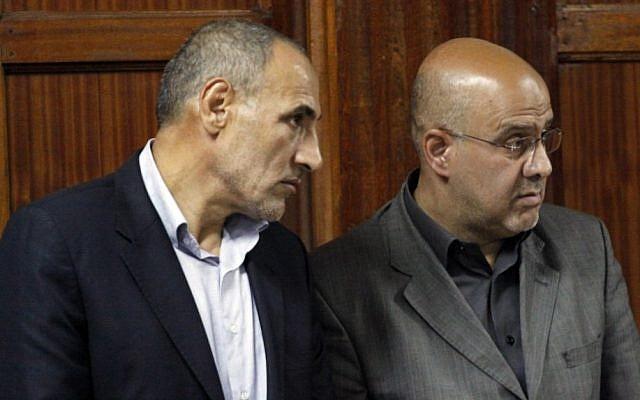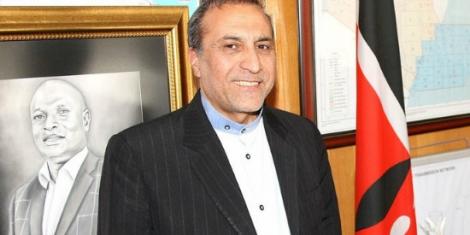March 15, 2019

The Iranian ambassador to Kenya stands accused of paying two African men to spring two Iranians convicted of terrorism, who have been languishing in jail more than six years.

But the two Africans appear to have been con artists who defrauded the ambassador of an unknown sum of money.
The two jailed Iranians have been widely identified as Qods Force agents dispatched to Iran in 2012 to plot terrorist attacks. A taxi driver testified that he drove them to case the Israeli Embassy in Nairobi.
News reports said Ambassador Hadi Farajvand had been looking for some insiders who could help the men escape prison.
The ambassador enjoys diplomatic immunity and cannot be arrested. But on February 22, detectives from the Directorate of Criminal Investigation (DCI) arrested the two African suspects alleged to have offered their services to the ambassador for an unknown amount of money after introducing themselves as senior Interior Ministry officials who could secure the release of Iranians Ahmad Abolfathi Mohammedi and Sayed Mansur Musavi.
But it appears they just pocketed the ambassador’s money and did nothing. A prosecutor told a court the men were to be paid 15 million Kenyan shillings ($150,000) altogether to spring the men, but he did not say how much was paid up front.
The pair were identified as Wesley Kiptanui Kipkemoi, an employee of the Kenyan prison system, and Shemgrant Agyei, a Ghanaian citizen.
When the two Iranians were arrested in 2012, they claimed they had come as tourists. A taxi driver told police of all the locations to which he had driven the men and how they cased those sites. The Iranians then led police to a buried cache of an explosive identified as RDX. They were accused of planning a terror attack. A Nairobi court sentenced each to life imprisonment.
On appeal, the sentence was reduced to 15-years. When the pair moved to the next higher level of appeal, three judges rejected the conviction and set them free. But the Director of Public Prosecutions (DPP) moved immediately to the Supreme Court, where the justices allowed the police to hold the suspects until a decision is made on their fate.
On March 15, the Supreme Court confirmed the convictions and 15-year sentences given by the trial court to the pair. The Supreme Court noted that they took the police to the burial site on a Mombassa golf course where the explosives were found—and that the Iranians had visited the site three times before their arrest—as evidence that the men were not tourists.
The Nation, a daily in Nairobi, said it is not clear what plan they purportedly sold to the ambassador or how much he paid them. But the ambassador was sufficiently confident that on February 8 he went to an airline office and made three plane reservations — one for Moham-medi, one for Musavi and one for himself.
When neither man appeared for the scheduled Qatar Airways flight February 11, he canceled the tickets.
The Nation reported that the ambassador then contacted Kenyan government officials to enquire about the two individuals he had been dealing with. That was reported to the DCI, which started the investigation that led to the arrest of Kipkemoi and Agyei.
The ambassador could not be arrested because of diplomatic immunity, but the prosecution told the court he was “actively involved in an elaborate planning and execution of the escape of the two Iranian nationals.”
There has been no indication from the Foreign Ministry as to whether it is planning any action against the ambassador. He would normally be expelled for such an offense.
According to The Nation, an Interpol report last June warned Kenya that Iranian officials had been attempting to compromise key government employees and the criminal justice system in order to have the two Iranians released.
The ambassador called a news conference at the embassy February 25 where he said the two men told him they were from the government and needed a payment to complete the release of the pair of Iranians.
According to Nairobi News, the ambassador said he was suspicious of the pair and challenged them in the meeting, but still acknowledged paying them some money, the amount of which he did not divulge.
He also said he alerted the police, although the Kenyan news reports said the police became aware of something amiss only when the ambassador began making phone calls asking who the two men were.






















